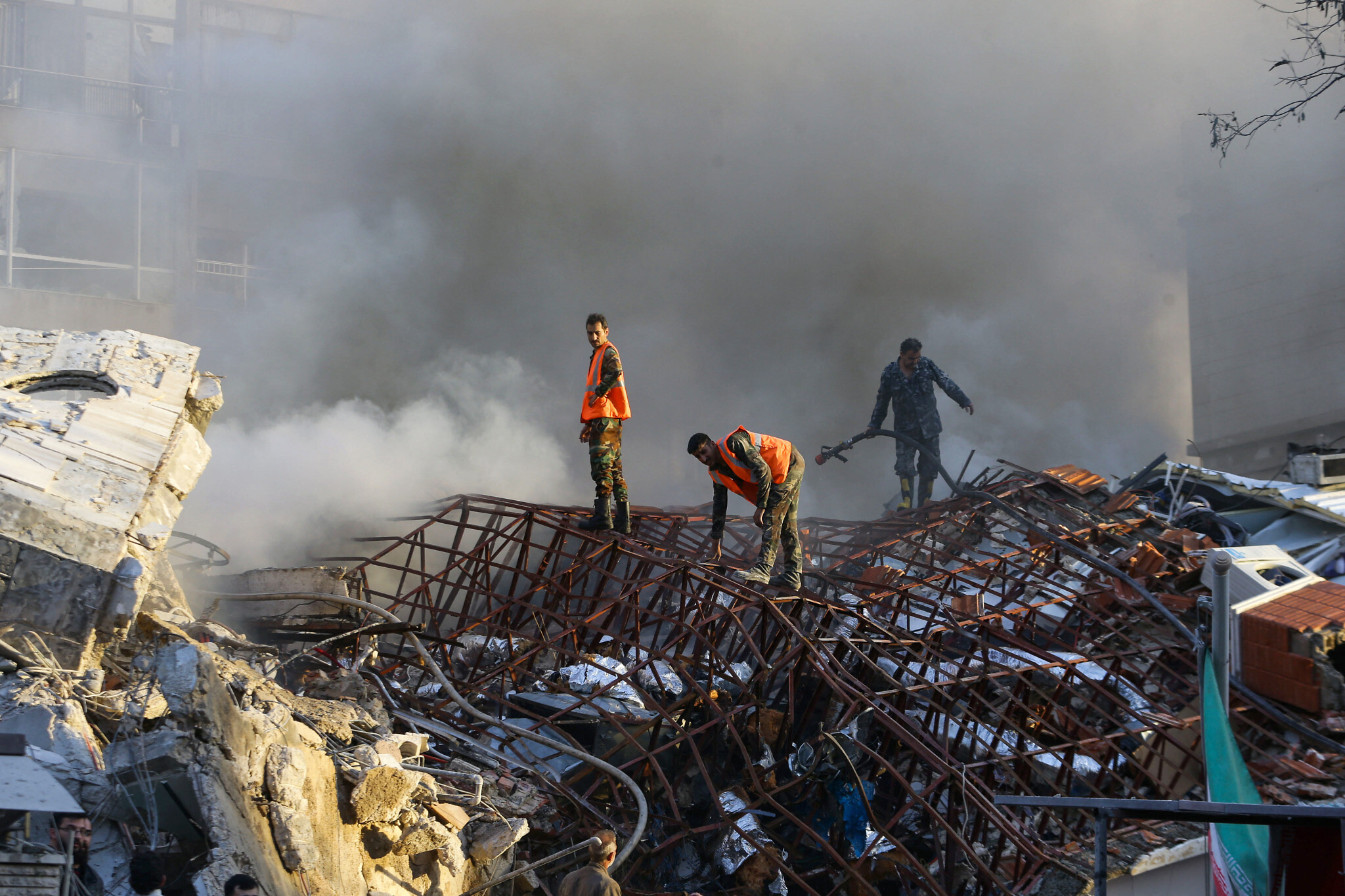



Eight Syrian soldiers were wounded and material losses were caused in an alleged Israeli strike on Damascus on Thursday evening, Syria’s state-run SANA broadcaster reported, citing a military source.
According to the report, shortly before 11 p.m., Israeli warplanes launched missiles from over the Golan Heights in northern Israel at a site on the outskirts of Damascus.
The strike appears to be the first since the April 1 killing of several top Islamic Republic Revolutionary Guard Corps officers, a strike also blamed on Israel.
Speaking to Reuters, a security source in the alliance that backs Syrian President Bashar Assad’s government alleged that the building, situated just south of the Sayyeda Zeinab shrine, was used by Syrian security forces. The report was disputed, however, by the Syrian Observatory for Human Rights (SOHR) war monitor which claimed that the building has been used by members of the Iran-backed Hezbollah terror group as a detention center since 2014.
There was no comment on the strike from the Israel Defense Forces. While Israel’s military does not, as a rule, comment on specific strikes in Syria, it has admitted to conducting hundreds of sorties against Iran-backed terror groups attempting to gain a foothold in the country, over the last decade.
While there has been an increase in strikes on Iranian targets in Syria since the start of Israel’s war with Hamas in October, the alleged strike overnight is the first one since an April 1 airstrike leveled what Iran said was a consulate in Damascus and killed seven Revolutionary Guards, two of them generals. While Israel didn’t comment on the strike, both Iran and Syria blamed Jerusalem.
After vowing revenge for the April 1 strike, Iran launched a first-ever direct missile and drone attack against Israel on April 13-14, against which Israel and its allied partners mounted a successful defense. Following the unprecedented attack, world leaders including Israel’s closest allies in the United States urged restraint, warning that any further action between the arch-foes could send the region spiraling into an all-out war.
On April 19, however, a radar system for a Russian-made air defense battery in the central Iranian city of Isfahan was hit, causing precise damage. Israel did not publicly take responsibility for the strike, and Tehran appeared to downplay what had occurred, with its Foreign Ministry spokesman Nasser Kanaani claiming that the “harassment attack caused no damage whatsoever and Iran’s defensive system carried out their duties.”
In the months following the October 7 Hamas terror onslaught in southern Israel and the subsequent war in Gaza, several rocket launches have been carried out against Israel from southern Syria, which have not caused any injuries.
Recent months have seen several alleged sorties carried out against sites in Syria as part of Israel’s ongoing efforts to prevent Iran from supplying arms to its proxy Hezbollah, which has stepped up attacks on northern Israel over the past several months amid the ongoing war in Gaza.
Since October 8, a day after the deadly Hamas attacks on southern Israel, Hezbollah has engaged in cross-border fire on a near-daily basis, launching rockets, drones and missiles at northern Israel in a campaign it says is in support of Hamas.
The attacks forced most residents several kilometers from the border to evacuate. Israel has responded with its own regular strikes on Hezbollah targets and has warned it will not be able to tolerate the terrorists’ continued presence on the border.
The Iran-backed terror group Hamas launched a massive onslaught on October 7, killing approximately 1,200 people in Israel and kidnapping 240, mostly civilians, amid horrendous acts of brutality and sexual assault.

